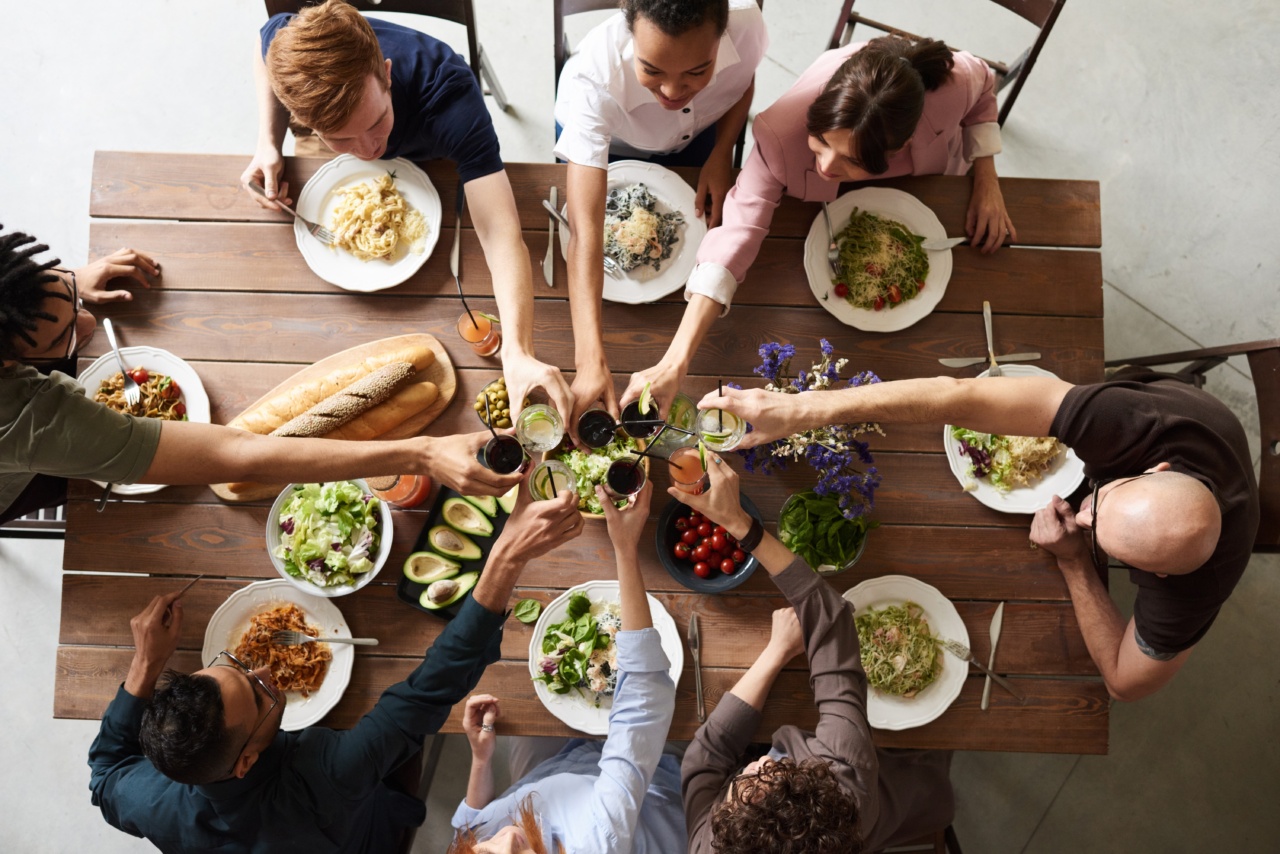Food poisoning is a common yet preventable occurrence that can result from consuming contaminated or improperly handled food. It can cause a variety of symptoms such as nausea, vomiting, diarrhea, abdominal pain, and fever.
While it may seem like a daunting task to protect yourself from food poisoning, there are several simple yet effective measures you can take to minimize the risk. This article will provide you with essential tips on how to avoid food poisoning from your meals.
1. Wash Your Hands Frequently
One of the most important steps you can take to prevent food poisoning is to wash your hands thoroughly and frequently.
Hands can be carriers of harmful bacteria or viruses that can contaminate your food, so it’s crucial to clean them before and after handling food, using the restroom, or handling any potentially hazardous items. Use warm water and soap, and scrub for at least 20 seconds before rinsing.
2. Practice Proper Food Storage
Storing food properly is key to preventing food poisoning. Perishable foods, such as meat, poultry, seafood, dairy products, and leftovers, should be refrigerated promptly.
Make sure your refrigerator is set to the appropriate temperature (below 40°F or 4°C) to inhibit bacterial growth. Additionally, use airtight containers or wraps to keep food fresh and prevent cross-contamination.
3. Cook Food to the Right Temperature
Cooking food thoroughly is an effective way to kill harmful bacteria. Use a food thermometer to ensure that food reaches the correct internal temperature.
Different types of food have specific temperature requirements, so make sure to research and follow the guidelines for each item. Cooking meat, poultry, seafood, and eggs until they reach the recommended temperature will help eradicate any potential pathogens.
4. Avoid Cross-Contamination
Cross-contamination occurs when bacteria from one food item are transferred to another. To prevent cross-contamination, use separate cutting boards and utensils for raw and cooked foods.
It’s also important to clean and sanitize these items thoroughly after each use. Additionally, keep raw meat, poultry, and seafood away from other foods, especially those that will be consumed raw, such as salads or fruits.
5. Be Cautious with Raw Eggs and Unpasteurized Products
Raw eggs and unpasteurized products, such as raw milk and certain cheeses, can contain harmful bacteria like Salmonella or E. coli.
Avoid consuming raw or undercooked eggs, as well as dishes that contain raw eggs, such as homemade Caesar dressing or aioli. When purchasing dairy products, ensure they are pasteurized to eliminate any potential pathogens.
6. Practice Safe Food Handling During Grocery Shopping
Proper food handling starts before you even bring groceries into your home. When grocery shopping, separate raw meats, poultry, and seafood from other food items in your cart to prevent cross-contamination.
Ensure that perishable items are kept cool during transportation, especially in hot weather. Promptly refrigerate groceries once you arrive home to maintain their freshness and prevent bacterial growth.
7. Pay Attention to Food Expiration Dates
Expired or spoiled food can be a breeding ground for bacteria. Always check food expiration dates before purchasing or consuming any products. If something is past its designated date, discard it immediately.
Even if a product appears and smells fine, it’s better to err on the side of caution and avoid consuming it if it has expired.
8. Avoid Leaving Food at Room Temperature for Too Long
Leaving perishable food at room temperature for an extended period can promote bacteria growth and increase the risk of food poisoning.
Avoid leaving dishes out for more than two hours, as bacteria can multiply rapidly in the “danger zone” between 40°F (4°C) and 140°F (60°C). If the temperature is above 90°F (32°C), reduce the time to one hour.
9. Be Mindful of Takeout and Restaurant Meals
When ordering takeout or dining at a restaurant, pay attention to the quality and handling of your food. Make sure that the establishment has good hygiene practices and follows food safety regulations.
Avoid consuming undercooked or raw dishes unless they are prepared using high-quality ingredients and proper food handling techniques.
10. Educate Yourself on Food Safety
Continuously educate yourself on food safety practices and stay up to date on the latest recommendations. Familiarize yourself with safe food handling procedures, cooking temperatures, and potential foodborne illnesses.
The more knowledgeable you are, the better equipped you’ll be to protect yourself and your loved ones from food poisoning.


























